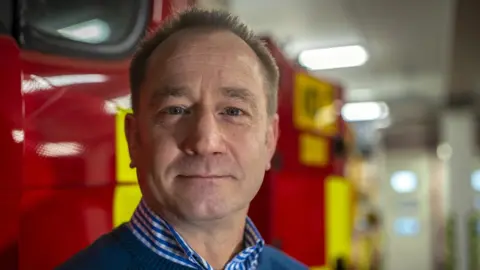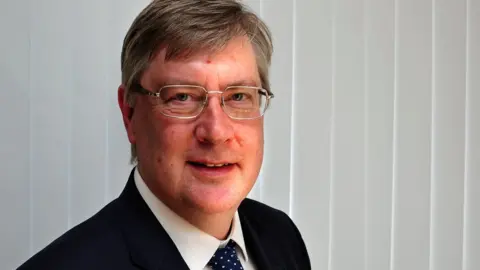Essex fire plan labelled 'absolute madness' by FBU
 BBC
BBCAn overhaul of the Essex fire service has been labelled "absolute madness" by the Fire Brigades' Union (FBU).
The union's Essex branch claimed 95% of the proposed Fire and Rescue Plan "doesn't work".
The FBU said many aspects, such as clearing road accidents and offering general safety advice, were being "offloaded" on to the fire service.
The Essex police and fire commissioner said his plans would keep people safe and it had been welcomed by others.
'Priorities'
Alan Chinn-Shaw, secretary of the 740-strong FBU branch, claimed the public survey, which runs until 15 January, risked misleading the public.
He was critical about proposals to extend the role of the fire service into "additional areas of community safety".
He said: "Everybody wants people to be safe, but is this really the job of firefighters or is it a way of divesting that responsibility from police to the fire service, to free up police officers?"
Mr Chinn-Shaw also criticised proposals to "minimise the social and economic impact of road collisions to get traffic moving more quickly".
"Nobody likes being stuck in traffic," he said, "but clearing shunts" was not the job of firefighters.
"Nowhere does it say in this document we want to get to fires more quickly," he said. "It's absolute madness."

Roger Hirst, the Police, Fire and Crime Commissioner for Essex, said the majority of the ideas were already happening in other areas of the country.
"We want the people of Essex to benefit in the same way - by the service working closely with its emergency service partners, focusing on saving lives, preventing injuries and helping vulnerable people be safe.
"I believe these draft priorities will help focus the service's activities into areas that will make a real difference for the public."
Mr Hirst said he has listened to "frontline firefighters, representative bodies and wider staff".
Tristan Ashby, chief executive of the Fire and Rescue Services Association (FRSA), said the proposals were a "breath of fresh air".
"He [Mr Hirst] said he was going to listen to everybody and that's fantastic - that is proper engagement and inclusion," he said.
"In terms of fires, the amount of workload that is fire-related is extremely small now.
"If we keep refusing to evolve then we will become less and less relevant."
